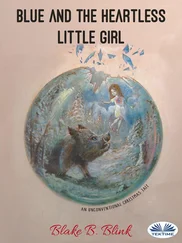Annie Randall White - The Blue and The Gray
Здесь есть возможность читать онлайн «Annie Randall White - The Blue and The Gray» — ознакомительный отрывок электронной книги совершенно бесплатно, а после прочтения отрывка купить полную версию. В некоторых случаях можно слушать аудио, скачать через торрент в формате fb2 и присутствует краткое содержание. Жанр: foreign_prose, История, foreign_edu, foreign_antique, на английском языке. Описание произведения, (предисловие) а так же отзывы посетителей доступны на портале библиотеки ЛибКат.
- Название:The Blue and The Gray
- Автор:
- Жанр:
- Год:неизвестен
- ISBN:нет данных
- Рейтинг книги:3 / 5. Голосов: 1
-
Избранное:Добавить в избранное
- Отзывы:
-
Ваша оценка:
- 60
- 1
- 2
- 3
- 4
- 5
The Blue and The Gray: краткое содержание, описание и аннотация
Предлагаем к чтению аннотацию, описание, краткое содержание или предисловие (зависит от того, что написал сам автор книги «The Blue and The Gray»). Если вы не нашли необходимую информацию о книге — напишите в комментариях, мы постараемся отыскать её.
The Blue and The Gray — читать онлайн ознакомительный отрывок
Ниже представлен текст книги, разбитый по страницам. Система сохранения места последней прочитанной страницы, позволяет с удобством читать онлайн бесплатно книгу «The Blue and The Gray», без необходимости каждый раз заново искать на чём Вы остановились. Поставьте закладку, и сможете в любой момент перейти на страницу, на которой закончили чтение.
Интервал:
Закладка:
"And what does he propose doing now?"
"Well, as I am not in his confidence, I can't just tell you, but I 'low we're not going to be in the dark long, neither are we likely to be the gainers by any move he makes if he can help it. He's got some thirty thousand men with him, and we'll have a lively time soon, you bet."
"The men want a brush, I think, from what they say. They're becoming tired of waiting."
"And so does the country; but they don't know how much easier it is to talk war than to be in it. What does the man who stays at home know about the dangers and trials of a soldier's life? How is he capable of judging whether it is time to fight or where it is best to strike, or how many odds a general of an army has against him? We'll have war enough before long—they needn't fear."
"Well, I suppose we'll some of us be in it soon, and who knows how many of us will come out?"
"Why, boy, you're not showing the white feather, I hope!' and Bill peered anxiously into the lad's troubled face.
"No, sir, I am not, but I can't help thinking of my poor mother, and, besides, you know I am going to fight her people. My mother is a Virginian."
"Is that so? I know, then, she must feel bad have you in our army. I can't blame her, nuther.
"But she's loyal to our flag, Bill," the boy hastened to add. "It would break her heart, though, if anything should happen to me."
"Cheer up! You'll get through all right. I can feel it in my bones."
Ralph laughed. "Why, of course I shall. It seems to me this war won't be a very long one."
"Perhaps not—you can't tell. But McClellan taught the Johnnies a lesson at the 'races' the other day."
"The 'races?'" Ralph's eyes opened wide.
"Yes, the 'Philippi races,'" Bill went on. "The Confeds ran so fast from our boys at that battle that they dubbed their retreat the 'Philippi races,' in honor of the speed they showed. He has been made a general, and given the Ohio troops to command. He crossed the Ohio with four regiments and banged after the enemy. He found it hard work, for they say Colonel Porterfield burned all the bridges. He wasn't long in putting them in order, though, and getting over some big reinforcements. He routed them at Philippi and at Rich Mountain. Government ought to remember him, I tell you."
And it did, for "Little Mac," as he was called, was made commander-in-chief of the Army of the Potomac.
CHAPTER III. RALPH'S FIRST BATTLE
AT Washington all sorts of rumors were plenty. It was generally known, however, that General Beauregard was making for Bull Run, where the stream presented a natural barrier. General McDowell left Washington with a force, whose accompaniments of civilians, following the marching columns on foot, reporters, congressmen and idle sight-seers in carriages, was a motley and curious sight. Everyone declared this to be the battle which was to close out the rebellion, and all were jubilant at the prospect.
On the army pressed under the brave McDowell, who was planning to execute a flank movement upon the Confederates' left. A two hours' engagement routed the Rebels, who fled before the Union charge.
The victory seemed to the Federal troops an easy one, but Generals Johnston and Beauregard took the field in person, and, planting their artillery in a piece of woods, they held the open plateau across which the Federals were advancing, wholly at their mercy. General McDowell could see nothing of this, owing to the shape of the ground, only by mounting to the top of the Henry House, where they took their stand, and where the attack was resumed in the afternoon.
The men on both sides were raw troops; they had not become the machines that after fighting made them. This was to most of them their first encounter, and as shot and shell flew rapidly by them, as the Union men advanced over the open ground upon the enemy, who were concealed within the woods, only to be picked off, one by one, by the Confederate sharpshooters, who took the gunners at their batteries, they became disheartened.
The fight in the forenoon had exhausted them, and they were unprepared for the work still to be done.
The battle was fierce; men were falling like hail, in all the agonies of death. Here a drummer boy was lying face downward, his stiff hand clutching the stick whose strokes would never wake the echoes again. There an officer, his uniform dyed with blood, lay prostrate on the ground, his horse half across his stiffening body, while at every turn the wounded were huddled together, in the positions in which they fell.
Ralph's heart turned sick, as he saw the brave fellows who manned the batteries tumbling over each other, many of them shot through the heart, as the Confederates, tempted by their success, stole nearer to the guns.
Captain Griffin, who made the sad mistake of thinking the troops were his own men coming to his aid, permitted the nearer approach of the Confederates. He discovered his error when a volley of musketry took nearly every gunner and stretched Lieutenant Ramsay low in death, as the rebels rushed in and seized the guns.
The fighting went pluckily on; both sides were in deadly earnest. The batteries seemed to be the coveted prize, and they were taken and retaken, first by one army, and then the other.
Worn and harassed, in the confusion that ensued, regiments and companies became mixed, and thousands of men lost track of their companies and wandered about, not knowing where they belonged.
In the dense smoke that covered the battle ground, Ralph became lost, and, making a short turn, found a clump of trees with a thick growth of underbrush. He heard voices, and threw himself flat upon the ground, determined not to be taken prisoner.
"Wonder what General Beauregard's next move will be?" The tones were low and even.
"Well, Lieutenant, we cannot know at present, but it is certain we have taught the Yanks a lesson this day. They'll never forget Johnston's brigade. They were so sure of whipping us. It was a hot battle, and three or four times I thought we had lost. Those fellows fight well, but they're no match for the South. What's the matter over there? See, our men are retreating. Don't they know we've won the day?"
It was true. So many times had the victory changed hands, that it was hard to tell who had won finally and it looked as if the Confederate line was breaking.
Jeff Davis' heart sank as he came up from Manassas and found that hundreds of Confederates, under the impulse of fear, were fleeing to the rear. He kept on, only to find that the Northern army was in full retreat, and the battle of Bull Run was a bitter defeat for the Federals.
Ralph lay there in ambush, pale with dread. He feared capture more than death. He rose quickly as the two officers galloped away, to stay their men, and looked upon the scene. Lines of men in blue and gray stretched away in the distance, while the noise of the guns, the neighing of wounded, horses, the huzzas of the victors, drowning the groans of the wounded, made him faint with horror, and his cheeks grew white as he saw men lying on their backs, their glassy eyes staring up to the sky, their faces ghastly and white, and peaceful, or else distorted with pain. Here a wounded soldier would half raise himself on one arm, and beg for water, while others, bleeding and dying, lay uncomplainingly, their eyes fixed on the blue sky, which nevermore would greet their waking vision.
In the dim light he saw all this, and knew not where to go. The terrible sights and hideous silence which succeeded the noise of conflict sickened him, and Ralph, the brave soldier boy, actually fainted.
"What's this? Why, it's Ralph! Is he killed?"
The tones sounded, to the boy's benumbed senses, far away, as a heavily bearded man knelt down and placed his hand upon his heart. He saw it was Bill, and the flush of mortification mounted to his brow, as he tried to rise.
Читать дальшеИнтервал:
Закладка:
Похожие книги на «The Blue and The Gray»
Представляем Вашему вниманию похожие книги на «The Blue and The Gray» списком для выбора. Мы отобрали схожую по названию и смыслу литературу в надежде предоставить читателям больше вариантов отыскать новые, интересные, ещё непрочитанные произведения.
Обсуждение, отзывы о книге «The Blue and The Gray» и просто собственные мнения читателей. Оставьте ваши комментарии, напишите, что Вы думаете о произведении, его смысле или главных героях. Укажите что конкретно понравилось, а что нет, и почему Вы так считаете.











